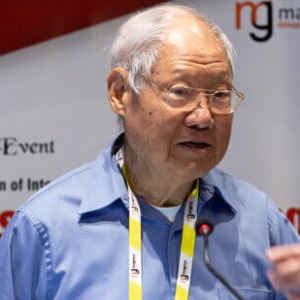Bioremediation Specialists
Bioremediation Specialists are environmental experts who harness the power of living organisms—primarily microbes, fungi, and plants—to clean up polluted environments. Their work involves developing and applying biological methods to break down or neutralize contaminants such as oil spills, pesticides, heavy metals, and industrial chemicals in soil, groundwater, and surface water. These specialists assess contaminated sites, select or engineer appropriate microorganisms, and monitor remediation progress to ensure environmental and public safety. Their techniques offer sustainable, cost-effective alternatives to traditional clean-up methods that often involve harmful chemicals or extensive excavation.
They also conduct research to improve the efficiency and specificity of bioremediation techniques, often using genetic engineering to enhance the natural abilities of organisms. Bioremediation specialists play a crucial role in ecosystem restoration, working alongside environmental scientists, toxicologists, and policymakers to implement long-term remediation strategies. Their efforts contribute to a cleaner environment, reduce risks to human and animal health, and support the global shift toward greener technologies. As pollution concerns grow, the role of bioremediation specialists becomes increasingly vital in safeguarding natural resources and promoting environmental sustainability. They are involved in projects ranging from cleaning up oil-contaminated shorelines to rehabilitating abandoned industrial sites. Many also develop innovative bioreactors and in-situ treatment systems for remote or difficult-to-access locations. Public education and community engagement are often part of their mission to encourage eco-conscious practices. Their interdisciplinary work bridges science, engineering, and environmental policy, driving impactful change worldwide.

Murray Moo Young
University of Waterloo, Canada
Limongi Tania
University of Turin, Italy



Title : Renewed novel biotech ideas, with bioreactor bioengineering economic impact
Murray Moo Young, University of Waterloo, Canada
Title : Improving health in over 40,000 patients: The impact of nanomedicine fighting antibiotic resistant infections
Thomas J Webster, Brown University, United States
Title : Osmotic lysis–driven Extracellular Vesicle (EV) engineering
Limongi Tania, University of Turin, Italy
Title : Evaluating cell compatibility and subcutaneous host response of silk fibroin–chitosan plug composites as potential resorbable implants
Luis Jesus Villarreal Gomez, Universidad Autonoma de Baja California, Mexico
Title : Comparative study of endo-?-1,4-mannanases from novel bacterial strains for the production of galactomanno-oligosaccharides
Shruti Saini, National Agri-food and Bio-manufacturing Institute, India
Title : Engineering Sf9 host cells with AcMNPV genes to control baculovirus infection dynamics and heterologous gene expression
Tamer Z Salem, Zewail City of Science and Technology, Egypt